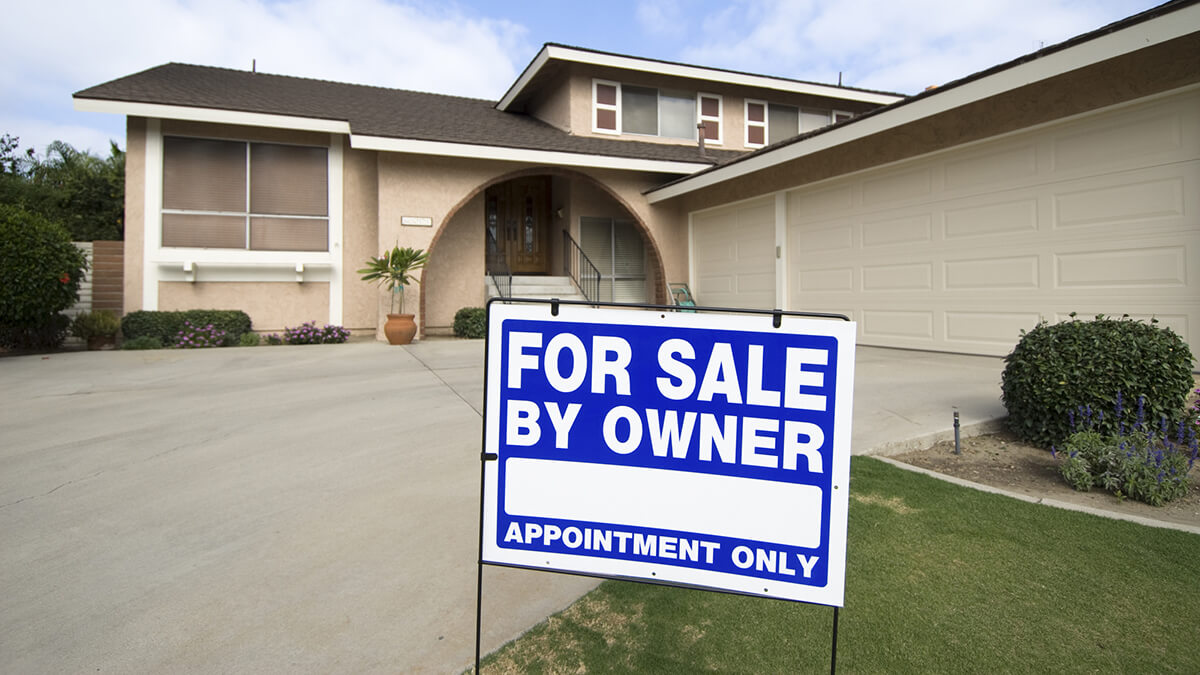Receiving multiple offers on your home is a double-edged sword. On one hand, it feels great to know your property is in demand. On the other hand, it can lead to confusion and pressure as you try to make the best decision. Multiple offers often lead to intense bidding wars, and while it can drive up your price, it also brings a lot of stress into the equation.
As a seller, you may find yourself balancing excitement with anxiety, wondering if you’re making the right financial move. Real estate agents face similar challenges—navigating these offers to get the best deal for their clients while keeping the process smooth.
For both homeowners and real estate agents, understanding how to handle multiple offers can make a huge difference. That’s where iBuyer.com can help. By offering an efficient selling process, iBuyer.com eliminates the hassle of managing bids, counteroffers, and buyer contingencies.
Skip the stress and sell your home quickly with iBuyer.com—your shortcut to a smooth, no-hassle transaction.
Multiple Offers on a House
Compare Cash Offers from Top Home Buyers. Delivered by Your Local iBuyer Certified Specialist.
One Expert, Multiple Offers, No Obligation.
Multiple Offer Madness: Breaking Down the Basics
What is a Multiple Offer Situation?
A multiple offer situation happens when more than one buyer submits an offer for the same property at the same time. It’s a common occurrence in competitive real estate markets where there are more buyers than available homes. Sellers love it because it often pushes up the price of their home. But, it can also bring a lot of stress and uncertainty.
For real estate agents, handling multiple offers means juggling different clients, offers, and timelines, while ensuring their sellers understand the pros and cons of each offer. Navigating this process requires careful strategy, but it’s a great position to be in—after all, more offers usually mean more opportunities.
Why Multiple Offers Occur More Often Than You Think
There are several reasons why multiple offers happen more frequently than you might expect. One major factor is market demand. In areas where homes are highly sought after, such as growing cities or popular neighborhoods, competition is fierce.
Other factors include pricing and timing. Homes that are priced just right—neither too high nor too low—attract more buyers. Additionally, homes that hit the market during peak buying seasons, such as spring and summer, are more likely to receive multiple bids.
The Emotional and Financial Rollercoaster for Sellers
The Emotional Tug-of-War: Excitement Meets Anxiety
Receiving multiple offers can feel like a whirlwind. At first, it’s exhilarating—who wouldn’t love the idea of multiple buyers competing for their home? But soon, excitement can turn to anxiety as sellers start to feel the weight of making the “right” decision. What if you choose the wrong offer? What if a better one comes along? These worries can quickly cloud the process.
It’s not just about picking the highest offer. There are other factors to consider, like buyer financing, contingencies, and closing timelines. Sellers often find themselves stuck in a tug-of-war between the joy of high demand and the pressure to make a smart decision. This is where having an experienced real estate agent or using a streamlined service like iBuyer.com can ease the tension, guiding sellers through the maze of emotions and options.
Financial Decisions: High Profits vs. Hidden Risks
When multiple offers are on the table, it’s easy to focus on the potential profits. But higher offers can sometimes come with hidden risks. For example, a buyer offering significantly more than asking price might include complex contingencies or rely on financing that could fall through. On the flip side, a slightly lower offer from a well-qualified, cash buyer could lead to a smoother, quicker closing.
Sellers need to weigh the benefits and risks of each offer carefully. Getting the highest price is great, but not if it’s tied to conditions that could delay or derail the sale. This is where careful evaluation comes in. Taking time to review the terms and understanding what’s truly best for your situation—whether it’s the highest price or the safest offer—can help avoid any surprises later on.
Savvy Tactics for Reviewing Multiple Offers
Beyond the Dollars: Decoding Terms and Contingencies
When reviewing multiple offers, it’s tempting to just look at the dollar amounts. But smart sellers know that the terms and contingencies can make or break a deal. A higher offer might seem appealing at first glance, but if it includes contingencies—like the buyer needing to sell their current home first or obtaining financing—it could delay or even cancel the deal.
On the other hand, an offer that might be lower in price but backed by a buyer with no contingencies and cash in hand could be far more reliable. Sellers should take time to understand the fine print, from financing details to closing terms, and work with their agent to evaluate the true strength of each offer. Remember, it’s not just about how much money you’ll get—it’s also about how smoothly the process will go.
Escalation Clauses vs. Bidding Wars: What’s Your Move?
In a hot market, you might see buyers include escalation clauses in their offers. This means that they’re willing to automatically increase their bid if someone else submits a higher offer. While this can be a good strategy for buyers, it can also create a bidding war that quickly spirals out of control.
Sellers need to decide how far they’re willing to push. Is a bidding war worth the potential fallout? It could drive up the price, but it also risks discouraging buyers or complicating negotiations. Every situation is different, so it’s important to weigh the pros and cons with your agent before encouraging buyers to bid against each other.
Counter Offers That Win: Best Timing and Smart Tactics
Counter offers can be a powerful tool when handled carefully. The timing of a counter offer is key—wait too long, and you might lose the buyer’s interest; act too quickly, and you may miss out on better offers. The goal is to get the best terms, whether it’s price, contingencies, or closing dates.
A well-timed counter offer can help you extract better conditions without pushing buyers away. Work with your real estate agent to craft a counter offer strategy that maximizes your position without scaring off potential buyers. Knowing when to counter—and when to accept an offer outright—can be the difference between a smooth sale and a stressful back-and-forth negotiation.
Legal Pitfalls and Ethical Boundaries Every Seller Must Know
Seller Transparency: What You Can Legally Share
In a multiple-offer situation, it’s natural to want to share information with buyers to push them to improve their offers. However, sellers and agents need to be careful about what they disclose. Real estate laws vary by state, but many require that certain information about offers be kept confidential. For example, revealing specific details about another buyer’s offer can sometimes violate confidentiality agreements.
It’s crucial to understand the legal implications before sharing any information with prospective buyers. Always consult with your agent or legal advisor to ensure you’re following the rules. While transparency is key to maintaining trust, it’s also important to avoid any legal missteps that could jeopardize the sale.
Ethical Selling: Playing Fair Without Losing Out
While the excitement of multiple offers can make sellers feel like they hold all the cards, it’s important to approach the process ethically. Using offers against each other to drive up prices or making false claims about buyer interest may seem like a strategy, but it can backfire. Buyers might walk away, or worse, file complaints for unethical behavior.
Fairness doesn’t mean settling for less. You can still negotiate aggressively while maintaining honesty and transparency. Ethical selling helps protect your reputation as a homeowner and ensures a smoother, drama-free transaction. Plus, acting fairly can encourage buyers to work with you, knowing they’re getting a fair deal without being misled.
Keeping Buyers in the Loop Without Losing Momentum
Clear Communication: Managing Multiple Buyer Expectations
When you’re handling multiple offers, keeping communication clear and consistent with all potential buyers is essential. Buyers who feel left in the dark may lose confidence or interest, and that could cost you a great offer. It’s important to maintain professionalism by responding promptly and clearly to each buyer or their agent, ensuring they know where they stand in the process.
One of the best ways to manage expectations is to set clear deadlines for offer submissions, reviews, and decisions. This way, buyers know when they’ll hear back and what to expect next. Open communication helps build trust and keeps the process moving forward without unnecessary delays or confusion.
When a Buyer Backs Out: How to Stay in Control
Sometimes, even the best offers fall through. Whether it’s due to a buyer’s cold feet, financing issues, or unexpected life changes, a buyer backing out can feel like a setback. But staying calm and prepared is key. As a seller, it’s important to have backup options and to maintain relationships with other interested buyers.
This is why reviewing all offers carefully from the start matters. If one buyer backs out, you want to have a strong second or third option lined up. Make sure your real estate agent is prepared to quickly pivot to the next best offer if needed. The ability to remain flexible and proactive will keep you in control, no matter what happens.
Reilly’s Two Cents
Think Long-Term
In my experience handling multiple offers, one thing is clear: it’s not always about the highest offer. Sellers often get caught up in the numbers, but looking beyond the price tag is crucial. I’ve seen plenty of situations where a slightly lower offer, with better terms, ended up being the winning move. Terms like contingencies, financing, and buyer reliability can make or break a deal. When reviewing offers, it’s essential to consider who can actually close the deal smoothly and on time.
Stay Calm and Objective
It’s easy to get swept up in the excitement of multiple offers, but keeping a level head is key. I always advise sellers to stay objective, even when they feel pressure to accept the highest bid right away. In my past transactions, I’ve seen that taking the time to carefully evaluate each offer—without rushing—leads to better decisions. Think through every detail before saying yes. This can be hard to do, but it pays off in the end when the process goes smoothly.
Conclusion
Handling multiple offers on your home is an exciting but complex process. It requires balancing emotions, understanding the legal and financial implications, and making well-informed decisions. While it might feel overwhelming at times, taking the right approach ensures you can maximize your outcome without unnecessary stress.
By carefully reviewing the terms and contingencies, staying objective, and working closely with your agent, you can confidently navigate the multiple offer maze. But if you’d rather avoid the hassle altogether, iBuyer.com offers a fast, stress-free solution. With iBuyer.com, you can skip the bidding wars, counteroffers, and legal headaches, selling your home quickly and efficiently.
Let us handle the details so you can move forward with ease. Explore the benefits of a streamlined home sale today with iBuyer.com.
Instant Valuation, Confidential Deals with a Certified iBuyer.com Specialist.
Sell Smart, Sell Fast, Get Sold. No Obligations.
FAQs Section
The best way to choose between multiple offers is to look beyond just the price. Consider the buyer’s financing, contingencies, and flexibility on closing dates. A cash offer with fewer contingencies may be more appealing than a higher offer with potential complications.
Not necessarily. While the highest offer is tempting, it’s important to weigh other factors like the buyer’s financial stability, contingencies, and their ability to close the deal. A slightly lower offer might be more reliable and come with fewer risks.
Offers with contingencies, such as the buyer needing to sell their home first, can add uncertainty to the process. It’s crucial to evaluate how likely these contingencies are to be met and consider whether the added risk is worth it. You can also negotiate to remove or limit contingencies.
Yes, if you delay too long in making a decision, buyers might move on or retract their offers. It’s important to set clear deadlines for offer reviews and make timely decisions to avoid losing momentum and buyers.
During a bidding war, counter-offers need to be handled strategically. You don’t want to push buyers too far, but you also want to maximize the value of your home. It’s best to work closely with your agent to create a smart counter-offer strategy that keeps buyers engaged while securing the best possible deal.




